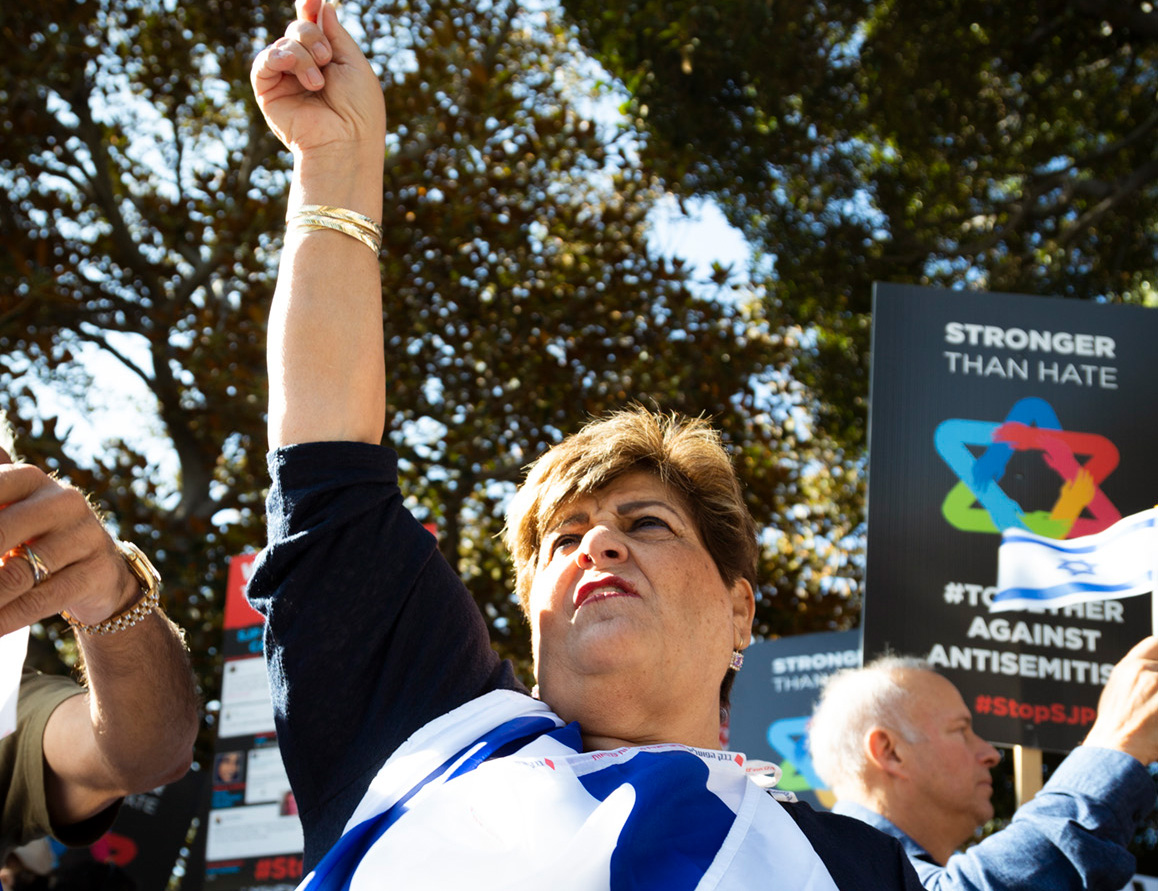Boycott of Israel condemned by UC chancellors citing threats to academic freedom

The University of California chancellors condemned the academic boycott of Israel in December, citing concerns for the academic freedom of students and faculty. The chancellors said they would continue to support partnership with both Israeli and Palestinian academia. (Liz Ketcham/Assistant Photo editor)
By Vito Emanuel
Jan. 10, 2019 1:08 a.m.
All 10 University of California chancellors unanimously condemned an academic boycott of Israel at the urging of 101 university-affiliated organizations in December.
The provisions of the boycott would discourage students and faculty from participating in academic events sponsored or funded by Israel, studying abroad in Israel or holding talks with Israeli state officials.
The UC chancellors said they believe the boycott could threaten students’ academic freedom to both engage with Israeli academia and to freely discuss conflicting viewpoints on campus.
“A boycott of this sort poses a direct and serious threat to the academic freedom of our students and faculty, as well as the unfettered exchange of ideas and perspectives on our campuses, including debate and discourse,” the chancellors said in the statement.
The statement added that the chancellors will continue to support partnership with both Palestinian and Israeli academia.
The Palestinian Boycott, Divestment, Sanctions National Committee initiated the Palestinian Campaign for the Academic and Cultural Boycott of Israel in 2004. The movement outlines the steps and guidelines for the academic boycott of Israel on university campuses. Under the boycott, universities are permitted to affiliate with Israeli scholars but any closer collaboration is discouraged.
Neil Netanel, a UCLA law professor, said in an email statement that he thinks the boycott could severely curtail students’ academic freedom to pursue study abroad programs or to exchange information with Israeli faculty.
“Many leaders in various fields, including Nobel Prize laureates, are Israeli academics,” Netanel said. “U.S. faculty and students would be harmed if those leaders were prevented from sharing their knowledge.”
The boycott has already started limiting options for study abroad programs across the U.S. Netanel added that a professor at the University of Michigan refused to write a letter of recommendation to a student who wanted to study abroad in Israel earlier this year.
The University of Michigan promised to pursue disciplinary action for two separate instructors who withheld letters of recommendation for Israeli study abroad programs based on their personal views.
The faculty at Pitzer College voted to end a study abroad program in Israel because of Israel’s treatment of Palestine. The president of Pitzer College criticized the senate following the decision.
Ricardo Vazquez, a UCLA spokesperson, said in an email statement that UCLA Chancellor Gene Block has consistently opposed calls for divestment from and boycotts against Israel.
“This has been the longstanding position of both the chancellor and the UC system,” Vazquez said.
Other UCLA faculty members said the UC system has not always opposed international and domestic boycotts.
Saree Makdisi, an English professor, said in an email statement that the opposition to an Israeli boycott contradicts the university’s previous endorsements of similar boycotts, citing the UC’s travel ban on nine states that authorize discrimination against LGBTQ people.
“I don’t recall seeing any expressions of concern for how heterosexual or cisgendered people might feel hurt by this boycott, nor worries about isolating Alabama or Kansas: Indeed, such isolation is the point,” Makdisi said.
Makdisi added he thinks the UC system is not opposed to the practice of boycotts in general.
“It seems to suddenly be problematic in the particular case of Israel,” Makdisi said. “It is not the form of the action that matters, but its target.”
James Gelvin, a history professor, said in an email statement that at least three members in his department are not allowed in Israel because of their political activities.
“Where is the chancellors’ statement condemning this practice?” Gelvin said. “Where is the chancellors’ statement condemning more than 50 years of the Israeli occupation, not to mention Israeli settlement practices, which have been condemned globally?”
Gelvin added that he believes the BDS movement is gaining mainstream appeal within university academia.
“The UC chancellors can squawk all they want, but the BDS movement has now become part of the conversation,” Gelvin said.
Students for Justice in Palestine at UCLA, Students Supporting Israel at UCLA and Bruins for Israel did not respond to requests for comment.

